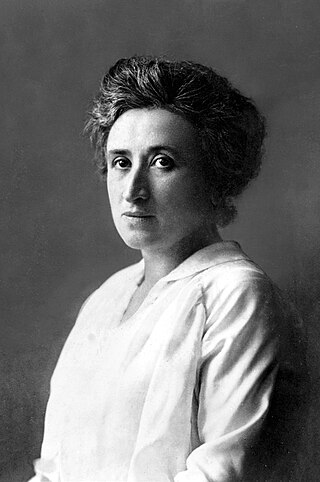
Rosa Luxemburg was a Polish and naturalised-German revolutionary socialist, orthodox Marxist, and anti-War activist during the First World War. She became a key figure of the revolutionary socialist movements of Poland and Germany during the late 19th and early 20th century, particularly the Spartacist uprising.
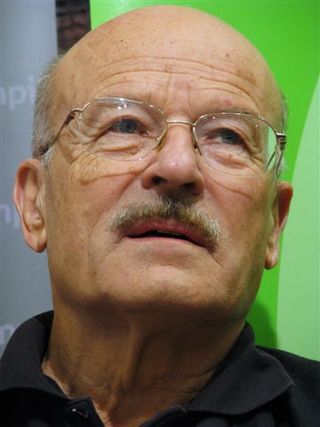
Volker Schlöndorff is a German film director, screenwriter and producer who has worked in Germany, France and the United States. He was a prominent member of the New German Cinema of the late 1960s and early 1970s.
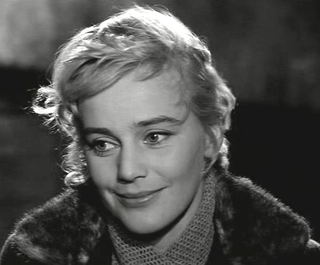
Maria Margarethe Anna Schell was an Austrian-Swiss actress. She was one of the leading stars of German cinema in the 1950s and 1960s. In 1954, she was awarded the Cannes Best Actress Award for her performance in Helmut Käutner's war drama The Last Bridge, and in 1956, she won the Volpi Cup for Best Actress at the Venice Film Festival for Gervaise.

Margarethe von Trotta is a German film director, screenwriter, and actress. She has been referred to as a "leading force" of the New German Cinema movement. Von Trotta's extensive body of work has won awards internationally. She was married to and collaborated with director Volker Schlöndorff. Although they made a successful team, von Trotta felt she was seen as secondary to Schlöndorff. Subsequently, she established a solo career for herself and became "Germany's foremost female film director, who has offered the most sustained and successful female variant of Autorenkino in postwar German film history". Certain aspects of von Trotta's work have been compared to Ingmar Bergman's features from the 1960s and 1970s.
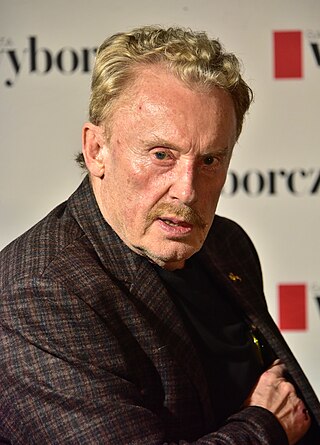
Daniel Marcel Olbrychski is a Polish film and theatre actor who is widely considered one of the greatest Polish actors of his generation. He appeared in 180 films and TV productions and is best known for leading roles in several Andrzej Wajda movies including The Promised Land and also known for playing a defector and spymaster Vassily Orlov alongside Hollywood actress Angelina Jolie in the movie Salt.

Hanna Schygulla is a German actress and chanson singer associated with the theater and film director Rainer Werner Fassbinder. She first worked for Fassbinder in 1965 and became an active participant in the New German Cinema. Schygulla won the 1979 Berlin Silver Bear for Best Actress for Fassbinder's The Marriage of Maria Braun, and the 1983 Cannes Film Festival Award for Best Actress for the Marco Ferreri film The Story of Piera.

Barbara Sukowa is a German actress of screen and stage and singer. She has received three German Film Awards for Best Actress, three Bavarian Film Awards, Cannes Film Festival Award for Best Actress, Venice Film Festival Award, as well as nominations for European Film Awards, César Awards and Grammy Awards.

Marianne and Juliane, also called The German Sisters in the United Kingdom, is a 1981 West German film directed by Margarethe von Trotta. The screenplay is a fictionalized account of the true lives of Christiane and Gudrun Ensslin. Gudrun, a member of The Red Army Faction, was found dead in her prison cell in Stammheim in 1977. In the film, von Trotta depicts the two sisters Juliane (Christine) and Marianne (Gudrun) through their friendship and journey to understanding each other. Marianne and Juliane was von Trotta's third film and solidified her position as a director of the New German Cinema.
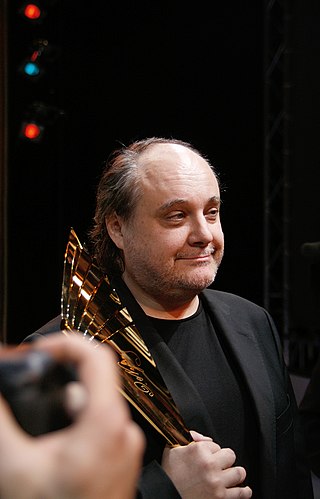
Paulus Manker is an Austrian film director and actor, as well as an author and screenplay writer.
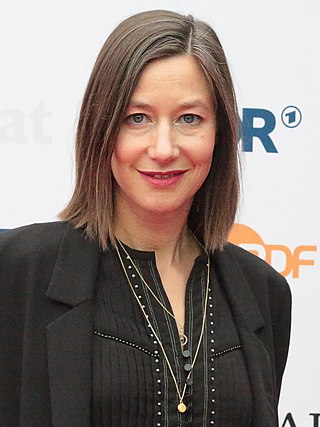
Johanna Wokalek is a German stage and film actress. A student of Klaus Maria Brandauer, she received critical recognition and three newcomer awards for her performance in the play Rose Bernd. Wokalek is best known for her award-winning appearances in the German films Hierankl, Barfuss, and The Baader Meinhof Complex. She received the Bambi award for her portrayal of the Red Army Faction member Gudrun Ensslin in 2008. She played the lead role in the film Pope Joan in 2009.

The 39th Cannes Film Festival took place from 8 to 19 May 1986. American filmmaker Sydney Pollack served as jury president for the main competition. British filmmaker Roland Joffé won the Palme d'Or, the festival's top prize, for the drama film The Mission.

Carla Gravina is an Italian actress and politician. She received a Cannes Film Festival Award for Best Actress for her role in La Terrazza (1980). Her other notable roles were in Love and Chatter (1957), Esterina (1959), and The Long Silence (1993). Gravina used to be a member of the Chamber of Deputies.

Vision is a 2009 German film directed by Margarethe von Trotta.

The 38th annual Venice International Film Festival was held on 2 to 12 September, 1981.
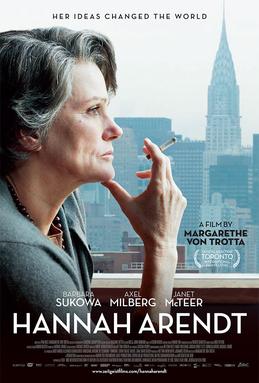
Hannah Arendt is a 2012 biographical drama film directed by Margarethe von Trotta and starring Barbara Sukowa. An international co-production from Germany, Luxembourg and France, the film centers on the life of German-Jewish philosopher and political theorist Hannah Arendt. The film, distributed by Zeitgeist Films in the United States, opened theatrically on 29 May 2013.

The Long Silence is a 1993 Italian-German-French political thriller film directed by Margarethe von Trotta. For her performance in this film Carla Gravina was awarded Best Actress at the 1993 Montreal World Film Festival and won the Italian Golden Globe for Best Actress. The film also won the Italian Golden Globes for Best Original Score and for Best Screenplay.

Jutta Lampe was a German actress on stage and in film. She was for 30 years a leading actress at the Schaubühne founded in Berlin by her husband Peter Stein, where she played both classical theatre such as Alkmene in Kleist's Amphitryon, and world premieres including Robert Wilson's Orlando for one actor, and roles that Botho Strauß created for her. She was also engaged at the Vienna Burgtheater and the Schauspielhaus Zürich. She appeared in more than twenty films from 1963, including lead roles in films by Margarethe von Trotta. Lampe was named Actress of the Year by Theater heute several times. Other awards included the Gertrud-Eysoldt-Ring and the Joana Maria Gorvin Prize for her life's work.

Valerie Pachner is an Austrian actress.

Konstantin "Kostja" Zetkin was a German physician, social economist and political activist.
Gerald Alexander Held is a German actor. He is internationally best known for his historical depictions, as Walther Hewel in the 2004 film Der Untergang, Robert Mohr in the 2005 film Sophie Scholl - Die letzten Tage and as state prosecutor Siegfried Buback in the 2008 film Der Baader Meinhof Komplex.


















